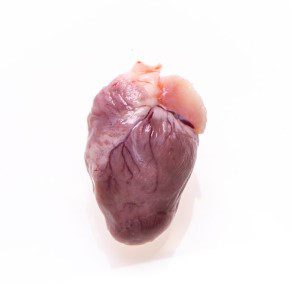

Moderate consumption of rabbit hearts is safe for dogs and can provide them with essential nutrients such as iron, phosphorus, selenium, and zinc. However, excessive feeding can lead to health risks due to their high cholesterol content.
Rabbit hearts are a nutrient-rich food source for dogs, containing essential vitamins and minerals like B6, B12, copper, phosphorus, and selenium. They are also a great option for dogs with food allergies or skin sensitivities.
While rabbit hearts offer many benefits, they are high in cholesterol and should not be excessively fed to dogs. Additionally, if a dog has eaten a wild rabbit, they may be at risk for worm infections and should be taken to a vet for deworming treatment.
It is recommended to source rabbit hearts from farm-raised rabbits as organs from wild rabbits are not safe for dogs. Raw feeders often consider rabbit hearts as muscle meat instead of organ meat when including them in their dogs’ diet.
Rabbit hearts, also known as bunny hearts, are a safe and healthy food option for dogs when consumed in moderation. These hearts are loaded with essential nutrients like iron, phosphorus, selenium, and zinc, making them a great addition to your dog's diet. They are commonly used in homemade dog food recipes and as a treat for dogs with allergies or sensitivities. However, it is important not to excessively feed them to your dog due to their high cholesterol content. It's also recommended to source them from farm-raised rabbits to avoid any potential health risks. If your dog has eaten a wild rabbit, take them to a vet for deworming treatment as a precautionary measure.
If you're looking for alternative food options for your dog, try feeding them chicken hearts or beef hearts. Both offer similar nutritional benefits and are affordable and easy to find at most local grocery stores. Have you ever tried feeding your dog rabbit hearts? How did they react to it? Let's start a conversation in the comments section below! Remember to always monitor your dog's intake and consult with a vet before making any significant changes to their diet.